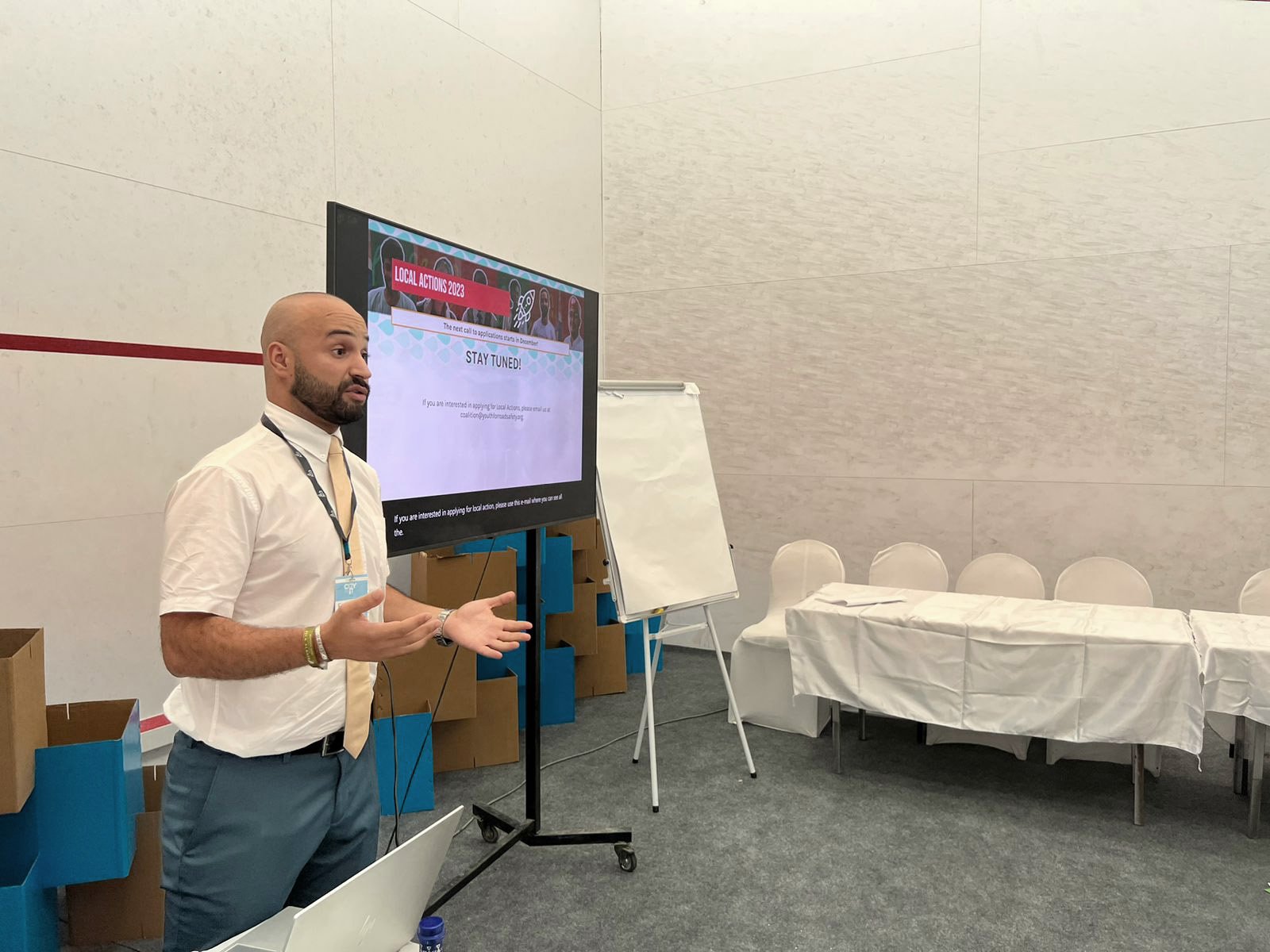Local Actions winners publish Toolkit for Moroccan policymakers
Head of the Local Actions Project “Youth Acting for Zero Road Fatalities in Morocco”, Dr. El Khalil Cherif and his team developed an advocacy toolkit titled ‘Together to Engage the Youth Towards Safe and Sustainable Mobility: A Guide for Decision-Makers’.
The Toolkit was designed to advance youth involvement in road safety and sustainable transport policy formation, specifically in Morocco. The Toolkit presents the current road safety situation youth face in the region, putting a spotlight on speeding, driving under the influence of drugs and alcohol, fatigued driving, and non-compliance with seatbelt and helmet laws.
Explained in the document is how road crashes continue to be at an alarming high despite the implementation of government strategy and infrastructure development. The results, according to the Toolkit, are “significant burdens on the country, individuals, and the families of those affected.”
Busy street in Morocco
The Toolkit emphasizes that youth in Morocco are often uninvolved in evaluating strategies for addressing road safety issues, let alone in creating solutions to address them.
”Youth represent the most vital component of Morocco's population pyramid, and their energy, innovation, and fresh perspectives hold the key to transformative change. By empowering young individuals with knowledge, tools, and a voice in shaping road safety measures, we can pave the way for a safer and brighter future.”
The Toolkit calls on decision-makers to start working with young people in the region by presenting resources, insights, and recommendations that will lead to better strategies for meaningfully engaging with youth. It gives decision-makers guides for inspection and evaluation practices through ‘successful international experiences’ in road safety.
Results from a road safety survey conducted by Local Actions team.



